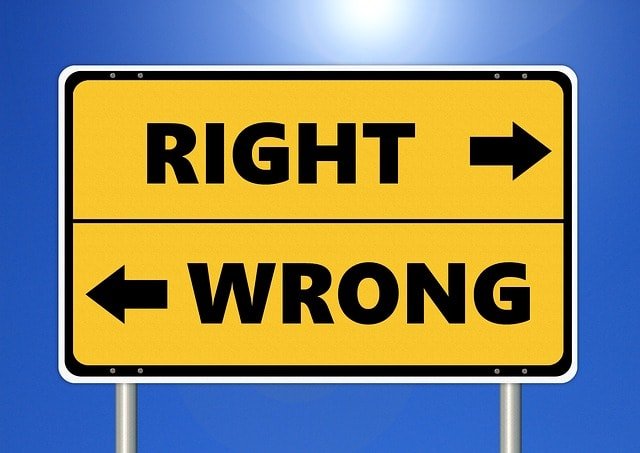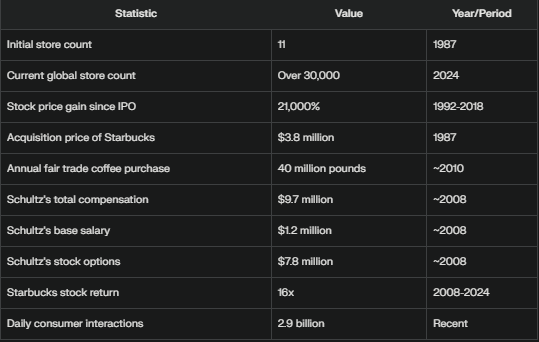A leader stands at the helm of a thriving company, basking in admiration—until a scandal breaks loose. Lies, greed, and shattered trust spill out for all to see. What happened? Too often, it boils down to poor ethical leadership—a refusal to hold the line when tough choices loom. That failure cuts deep in a world where moral dilemmas can twist even the steadiest hands. It frays workplace bonds, scatters loyal teams, and risks toppling everything built.
So, how does it unravel so quickly? Let’s step closer and peek into the cracks threatening to swallow everything.
So What Is Ethical Leadership, Anyway?

Envision yourself in a leadership role, perhaps managing a team or running a small business. For example, you might be faced with a choice: Do you cut corners to impress a business partner or adhere to ethical practices, even if it means slowing down? That’s where ethical leadership comes into play.
But what exactly is ethical leadership? It’s about choosing the path that embodies ethical principles—such as honesty, respect, and accountability—even when the going gets tough. This approach distinguishes ethical leaders from others, making them not just leaders but better leaders.
And it’s not just for top-tier CEOs. Whether you’re in management, guiding employees, or even navigating the complexities of parenting, ethical leadership skills manifest in how you address ethical considerations daily. It’s about being conscious, understanding your stand, and acting with moral conduct.
Think of it as a moral compass guiding you in making decisions that benefit yourself, your company, your customers, and society. This approach helps you become a better leader and fosters a more ethical and harmonious environment for everyone involved.
Lorem ipsum dolor sit amet, consectetur adipiscing elit. Ut elit tellus, luctus nec ullamcorper mattis, pulvinar dapibus leo.
Why Is Ethical Leadership Important?
Nowadays, with scandals popping up everywhere, trust in leadership can feel fragile. That’s why ethical practices are more crucial than ever. Whether they’re your team members, customers, or society, people are looking for leaders who aren’t just in it for the money but genuinely prioritize ethical conduct. It’s all about doing the right thing, even when it’s tough.
Consider a company that embodies an ethical organizational culture. In such a place, employees feel respected, boosting morale and resulting in loyal employees committed to the long haul. Plus, an improved brand image attracts business partners who value integrity. Schultz’s Starbucks decision is a prime example—his focus on employee benefits enhanced the company’s reputation and profitability over time.
On the contrary, poor examples—like leaders dodging accountability—can severely damage workplace culture and erode trust.
Ethical Dilemmas: The Real-World Tug-of-War

Let’s make it relatable. Think about being in a leadership role at work, and your boss asks you to adjust some figures to enhance the reputation for investors. It’s tempting—success in the long run is on the line, and you want to ensure your loyal employees have secure jobs. But deep down, you know it’s not the right thing to do. This is an ethical dilemma, a situation that tests your moral behavior.
In such moments, ethical leaders set the bar. They don’t react impulsively; instead, they pause and consider: What’s my moral responsibility here? Who could be impacted by this decision? How will this choice affect our workplace culture?
These challenges aren’t straightforward; they often involve choosing the lesser of two evils or finding a creative solution to uphold ethics.
Consider examples of ethical leadership, like a manager who admits to an error instead of blaming the team—that’s taking full responsibility. Compare this to poor examples, like covering up mistakes to save face, and it becomes clear why integrating ethical conduct and guidance is vital.
Building Ethical Leadership Skills
So, how do you become a great leader who gracefully handles these issues? Here are some tricks I’ve picked up to strengthen leadership ethics and become an example of ethical leadership:
Know Your Values
Think of your principles as your GPS. Whether it’s transparency, justice, or fairness, knowing your ethical principles helps you navigate the complex terrain of decision-making. When moral leaders are clear about what they stand for, making decisions becomes less like a shot in the dark and more like following a well-lit path.
Face the Tough Stuff
Ethical decisions often mean having those difficult conversations we’d rather avoid, like calling out inappropriate conduct or saying no to a shady deal. It’s uncomfortable, but it’s how you build a culture of respect and open communication. Research on ethical leadership scales, like those from Brown and Treviño, shows that open communication directly correlates with trust-building—employees feel safer and more valued when leaders address issues head-on.
Zoom Out for Perspective
In stressful situations, it’s easy to get tunnel vision. Take a moment to step back and ask yourself: How will this choice impact employees, customers, or the organization down the road? Viewing decisions through a long-term success lens helps eliminate the chaos and align actions with your ethical values.
Lean on Role Models
You don’t have to go it alone. Reach out to a mentor or business partner who’s faced ethical issues. Their experiences can illuminate your path, clarify your ethical responsibility, and make you feel appreciated in your choices. Having someone to guide and support you can be invaluable when navigating the murky waters of moral dilemmas.
Implementation Strategy: Practical Steps
To implement these skills, consider developing a code of ethics for your team or organization. This document outlines core values and expected behaviours, serving as a tangible guide for decision-making. Pair it with ethics training workshopsand interactive sessions where employees role-play dilemmas like Schultz’s benefits decision. These steps embed strategic thinking into everyday practice.
The 6 Main Principles of Ethical Leadership

To solidify your skills, embrace these six principles defining ethical leadership. Think of them as your trusty sidekicks, guiding you through the twists and turns:
Justice: Treat everyone fairly, like a wise friend who ensures everyone gets a fair share of the pie. It’s about making decisions that uplift the entire team, not just a fortunate few.
Respect: Appreciate everyone’s input, from your team members to your customers. Mutual respect is the glue that holds relationships together, creating a positive and vibrant workplace atmosphere.
Integrity: Stay true to your moral compass, even when it’s not easy. This will earn your trust and make you a leader people can count on.
Responsibility: Own your actions and their consequences. Picture that manager who admits to a mistake it’s about stepping up and taking full accountability.
Transparency: Be open about your decisions and the reasons behind them. It’s not just about polishing the brand image; it’s about fostering trust through honest communication.
Compassion: Lead with empathy, putting people first. Imagine a CEO who takes a pay cut to save jobs and shows care for others, building loyalty and boosting morale.
Ethics and Leadership: The Ripple Effect

Ethical leadership isn’t just about you but the organization and beyond. When business leaders embody ethical behavior, they set a powerful example that resonates throughout the team, inspiring everyone to follow suit. It’s crucial in creating a workplace where everyone feels respected and valued, striving together for a better future.
Those in management and leadership positions serve as role models, demonstrating that ethics isn’t just a checkbox—it’s the backbone of leadership and business ethics, a guiding principle that shapes every decision.
Understanding the Ripple Effect
Imagine dropping a pebble into a calm pond; the initial splash is small, but its ripples can extend far beyond the point of impact. Similarly, in a corporate environment, a leader’s small actions can reverberate throughout the organization, influencing culture, morale, and performance
Proof in Action: Examples and Research
Here’s how ethical leadership—and its absence—creates tangible ripples:
Patagonia: Yvon Chouinard’s Yvon Chouinard’s commitment to environmental responsibility transformed Patagonia into a trailblazer in sustainability. His approach to ethical leadership not only cultivated a dedicated team but also inspired both competitors and consumers to prioritize environmental ethics.
By aligning business goals with a deep respect for the planet, Chouinard set an example for other companies to follow, demonstrating that ethical conduct and business success can go hand in hand. His story is a reminder of how one person’s values can reshape industry standards and create a lasting impact.
Starbucks: Howard Schultz made a heartfelt decision to prioritize employee benefits, like healthcare, which significantly boosted morale and enhanced Starbucks’ reputation. This commitment to ethical leadership became a benchmark for corporate responsibility in retail, shaping how the public views businesses. Schultz’s leadership showed how putting employee welfare first and sticking to ethical business practices could lead to long-term success and a stronger brand image.

Enron (The Counterexample): The lack of ethical leadership at Enron led to its catastrophic collapse, serving as a cautionary tale about the consequences of unethical behavior in business. This downfall not only shattered public trust but also prompted significant regulatory changes like Sarbanes-Oxley. The Enron scandal is a stark reminder of how essential ethics are in maintaining corporate integrity and public confidence.
Your Turn to Step Up
Ethical leadership is vital in business and leadership, focusing on integrity, responsibility, and trust. It requires making decisions aligned with moral principles like honesty and accountability, even in challenging situations. Ethical leaders foster an organizational culture that emphasizes ethical behavior, benefiting employees, customers, and society.
Howard Schultz’s decision at Starbucks to provide comprehensive health benefits to all employees is a prime example of ethical leadership, showcasing how such choices can enhance employee morale and brand image. Ethical leadership is relevant at all levels, aiding leaders in navigating ethical dilemmas and promoting a culture of respect and fairness.
Developing ethical leadership skills involves understanding your values, confronting tough decisions, and seeking advice from role models. Implementing a code of ethics and offering ethics training can reinforce these values within an organization. Adopting principles like justice, respect, integrity, responsibility, transparency, and compassion is essential for ethical leadership.
Nowadays, ethical practices are crucial for building trust and achieving long-term success. Organizations that embody ethical leadership create environments where employees feel respected and valued, enhancing loyalty and improving brand image. Ethical leadership sets a positive example, encouraging everyone to contribute to a better future.

A trailblazer in humanising leadership and building high-resilience teams. As a former United Nations Peacekeeper, he leverages his high-stakes experience to redefine leadership dynamics. With a career distinguished by numerous accolades, Joseph now helps organizations thrive through a human-centric approach, enhancing performance, productivity, and workplace culture.







